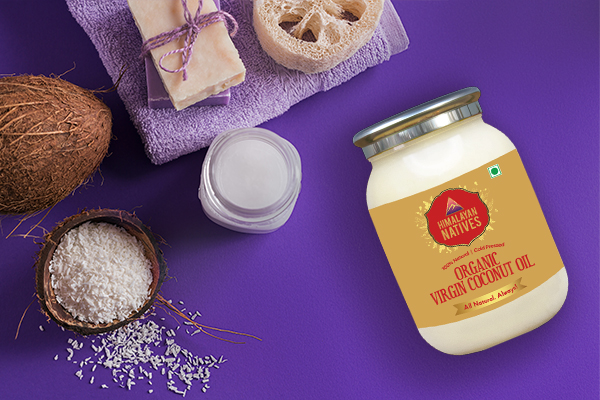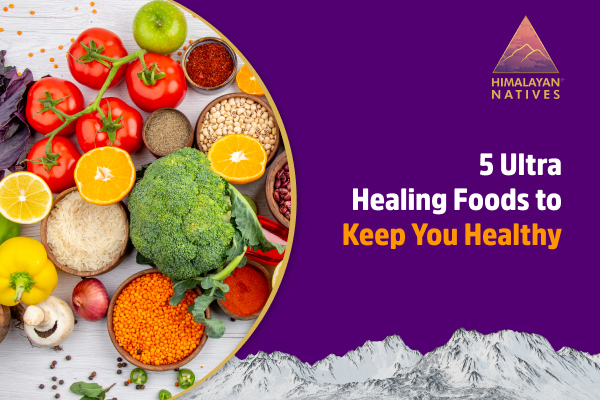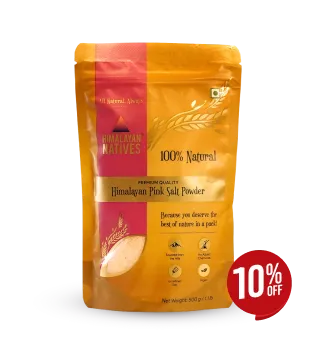
Vitamin B12 is essential for maintaining energy, well-being, and overall vitality. This all-rounder nutrient plays a key role in brain function, red blood cell production, and nervous system health. Without enough B12 in your diet, you may experience weakness, dizziness, and even neurological issues, making it crucial to maintain adequate levels of B12 for long-term health.
To help you stay energized and healthy, we’ve put together a list of vitamin B12-rich foods, covering the best sources of Vitamin B12 to keep your body functioning at its best. But right before that, let’s learn in detail why our body needs this essential nutrient.
Why Is Vitamin B12 Important?
Vitamin B12 is a powerhouse that plays a vital role in boosting energy levels and enhancing brain function, and is one of the best ways to support key bodily functions. Some of its crucial benefits include:
Energy Production: Vitamin B12 helps convert food into energy, helping prevent fatigue and weakness.
Brain Health: Vitamin B12 is essential for cognitive function and memory retention. A deficiency of this vitamin can lead to brain fog and difficulty concentrating.
Red Blood Cell Formation: Without enough vitamin B12, your body struggles to produce healthy red blood cells, increasing the risk of anemia and poor oxygen circulation.
Nervous System Function: Vitamin B12 protects our nerve cells and improves communication between them, ensuring a strong and healthy nervous system.
Including B12 natural sources in your diet is the best way to get B12 and ensure sustained energy, brain health, and overall well-being.
Plant-Based and Fortified Sources of B12

For those following a vegetarian or vegan lifestyle, getting enough Vitamin B12 might be challenging. Unlike other essential nutrients, natural sources of this vitamin are predominantly found in animal-based foods, making it crucial for plant-based eaters to seek alternative ways to meet their daily requirements. Fortunately, a variety of Vitamin B12 foods for vegetarians exist, thanks to fortified options and natural supplements.
Below, we will explore the best plant-based B12 sources and how to seamlessly integrate them into a delicious, balanced diet.
Fortified and Plant-Based Milks: The Best Way to Get B12 Daily
Fortified foods are one of the most reliable sources for those on a plant-based diet. Soy milk, almond milk, and oat milk don’t naturally contain B12 but are enriched with Vitamin B12, providing an easy way to meet daily needs. Always check the nutrition labels to ensure that the product contains a significant amount of B12.
How to Include Fortified Foods in Your Diet:
Breakfast Boost: Start your morning with a cereal topped with fortified almond or oat milk.
Smoothie Power: Blend fortified soy or almond milk with add-on options like bananas, spinach, and chia seeds for a nutrient-packed drink.
Creamy Oatmeal: Cook oats in fortified plant-based milk and add nuts, seeds, and berries for extra flavor.
Recipe: Energizing B12 Breakfast Bowl
Ingredients:
1 cup fortified cereal
1 cup fortified almond or soy milk
½ banana, sliced
1 tbsp flaxseeds
1 tsp honey or maple syrup (optional)
Instructions:
Pour the fortified milk over the cereal.
Top with banana slices and flaxseeds.
Drizzle with honey or maple syrup, if desired.
Enjoy a nutrient-rich breakfast!
Nutritional Yeast: A Natural B12 Supplement with a Cheesy Twist

Nutritional yeast is a favorite among vegans, not just for its delicious, cheesy flavor but also because it is often fortified with Vitamin B12. While nutritional yeast does not naturally contain high levels of B12, many brands add it, making it an excellent plant-based B12 source.
How to Use Nutritional Yeast:
Blend into soups, sauces, or dressings.
Add to scrambled tofu for a B12-rich vegan breakfast.
Recipe: Vegan B12-Boosted Mac & Cheese
Ingredients:
2 cups cooked pasta
1 cup unsweetened fortified plant-based milk
¼ cup nutritional yeast
1 tbsp olive oil
1 tsp garlic powder
1 tsp mustard
Salt and pepper to taste
Instructions:
In a saucepan, heat plant-based milk and add nutritional yeast, olive oil, garlic powder, and mustard.
Stir until creamy and well combined.
Mix in the cooked pasta and season with salt and pepper.
Serve hot and enjoy a Vitamin B12-rich comfort meal!
B12 Supplements: Ensuring Sufficient Intake
For individuals who struggle to meet their Vitamin B12 needs through diet alone, natural B12 supplements are an effective solution. They come in various forms, including:
Tablets or Capsules - A simple and widely available option that provides a consistent dose of B12.
Sublingual Drops or Sprays - Designed for quick absorption, these bypass the digestive system by being absorbed directly under the tongue, making them a fast and efficient way to boost B12 levels.
Best Way to Get B12 from Supplements:
Consult a healthcare professional before choosing a supplement.
Opt for methylcobalamin or cyanocobalamin supplements, as these are the most effective forms of vitamin B12.
Stick to the recommended dosage to avoid overconsumption.
Recognizing the Signs of B12 Deficiency
B12 deficiency often goes unnoticed until symptoms become severe. Recognizing early warning signs can prevent long-term health issues.
Key Symptoms
A deficiency in vitamin B12 can impact multiple systems in the body, leading to noticeable health concerns:
Fatigue & Weakness - Low B12 disrupts red blood cell production, reducing energy levels.
Dizziness & Shortness of Breath - Anemia from B12 deficiency limits oxygen circulation.
Tingling & Numbness - Poor nerve function causes ‘pins and needles’ sensations.
Memory Issues & Brain Fog - Cognitive decline and difficulty in concentrating may occur.
Pale or Jaundiced Skin - Anemia can lead to paleness or yellowish skin.
Who’s at Risk?
Some individuals are more susceptible to B12 deficiency due to dietary restrictions or medical conditions. For instance,
Older Adults - The body's ability to absorb vitamin B12 decreases with age.
Vegans & Vegetarians - B12 is mainly found in animal-based foods.
People with Digestive Disorders - Conditions like Crohn’s or celiac disease hinder absorption of the vitamin.
Pregnant & Breastfeeding Women - Increased metabolic demands during pregnancy, including the growth of the placenta, fetus, and maternal tissues require more vitamin B12.
When to See a Doctor?

If you notice any of the signs of B12 deficiency, it's crucial to consult a healthcare professional. Upon doing so, your doctor may recommend any of the following:
Blood Tests - Helps confirm deficiency.
Dietary Changes - Lean meats, dairy, fortified milks, and nutritional yeast can help.
Supplements - Needed if dietary intake is insufficient.
Medical Treatment - Severe cases may require B12 injections or high-dose supplements.
Why Early Detection Matters
Untreated B12 deficiency can cause nerve damage, anemia, and cognitive decline. Prioritize B12 intake and seek medical advice if symptoms arise to maintain long-term health.
Conclusion
Vitamin B12 is essential for sustaining energy, supporting brain function, and maintaining overall well-being. Ensuring a steady intake of B12-rich foods is one of the best ways to keep your body functioning at its peak.
For more such healthy content, follow Himalayan Natives on Instagram and Facebook!
Frequently Asked Questions (FAQs):
1. How to boost my B12 levels through a vegetarian diet?
Answer: You can boost B12 intake with foods like shiitake mushroom, leafy greens and fortified foods or take B12 supplements.
2. What causes vitamin B12 deficiency?
Answer: B12 deficiency can be caused by poor diet, vegan and vegetarian diets that tend to be low in B12, digestive issues, or malabsorption conditions.
3. Does B12 affect the thyroid?
Answer: Yes, low B12 levels can impact thyroid function, leading to fatigue, weakness, and metabolic issues, especially in hypothyroidism.
4. Which dry fruits are rich in vitamin B12?
Answer: Most dry fruits do not naturally contain B12, but some fortified options, like fortified nuts or seeds, may have added B12.
5. What are the effects of B12 deficiency?
Answer: Vitamin B12 deficiency can cause fatigue, weakness, dizziness, and nerve issues like tingling in hands and feet. Long-term deficiency may lead to anemia, memory problems, and even nerve damage.
 HELPFUL0 people found it helpful
HELPFUL0 people found it helpful
Related Blogs
Subscribe to Our Blogs
and never miss on the latest update!

















